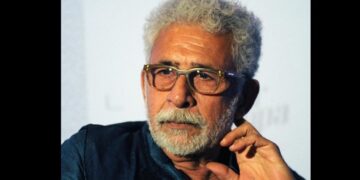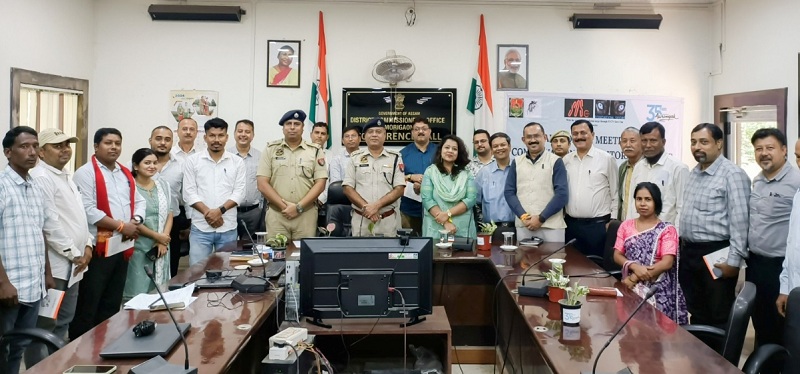Guwahati: A stakeholders meeting, organized by the Morigaon district administration in association with Aaranyak, with support from the IUCN (CAG), was held on Monday to explore ways for better conservation of the renowned rhino habitat in Pobitora Wildlife Sanctuary.
The meeting, held in the conference hall of the District Commissioner’s office, highlighted critical issues related to the conservation of the one-horned rhino and its habitat in Pobitora Wildlife Sanctuary (WLS).
Participants suggested ways to overcome these challenges through synergistic actions that require sustained and proactive support from the district administration.
District Commissioner of Morigaon, Debashis Sharma, played a key role in facilitating the meeting. Local NGO Sipa extended valuable support to organize the meeting in coordination with Aaranyak’s Senior Manager, Dr. Deba Kumar Dutta.
District Commissioner Sharma termed the meeting significant for the conservation of rhinos and their habitat in Pobitora WLS and pledged to address the issues raised by various stakeholders.
Superintendent of Police Hemanta Kumar Das praised the support of the Village Defense Party (VDP) and local people in anti-poaching efforts undertaken by the Police and Forest Department, which has led to ‘zero-poaching’ over the years. He also outlined a few plans the district police are considering to secure the rhinos of Pobitora.
Deliberating in the meeting, Aaranyak’s secretary general and CEO, Dr. Bibhab Kumar Talukdar, highlighted three key issues, apart from poaching, that are currently challenging the conservation of the rhino habitat in Pobitora WLS.
While lauding the achievement of ‘zero rhino poaching’ for the last eight years due to outstanding coordination among various agencies and stakeholders, including the Forest Department, Police, VDPs, and local communities, Dr. Talukdar underscored the urgent need to address the problem of rampant cattle grazing in Pobitora grassland.
This grazing has led to a scarcity of nutritious food for rhinos. He requested the district administration to explore the allotment of about 200 hectares of government land to set up a grazing reserve for cattle in the area, making Pobitora grassland cattle-free.
This would benefit rhinos as the grasslands in Pobitora have been overgrazed by thousands of cattle, leading to a lack of nutritious food for rhinos. He stated that setting up a Grazing Reserve would be a landmark contribution of the Morigaon District Administration to the conservation of rhinos in Pobitora WLS.
Dr. Talukdar further emphasized the need for proper habitat management in the WLS to improve fodder for rhinos and requested the district administration to explore options to provide as much funding as possible for this purpose.
He also highlighted the urgent need to address the issue of heavy siltation on natural wetlands in the core area of the WLS through concerted efforts led by the district administration to restore the overall habitat in the wildlife protected area.
While stating that the resumption of rhino translocation from Pobitora WLS, known for its highest rhino density on the planet, would bode well for the rhino population, Dr. Talukdar further suggested engaging poverty-stricken unemployed local people in government development projects by providing job cards.
This would prevent this vulnerable section of the population from being lured by vested interests linked to rhino poaching networks.
Additional District Commissioner Anusuya Sharma, present throughout the discussion, appreciated the concerns raised and solutions suggested by various stakeholders. She assured that the administration would take up the matters with concerned departments for resolution.
Former Conservator of the Assam Forest Department, C.R. Bhobora, and former Assistant Conservator of Forest, Mukul Tamuli, enriched the discussion by sharing their valuable experiences from managing Pobitora WLS during their tenures. The Range Officer of Pobitora WLS, Pranjal Baruah, highlighted the efforts of the Pobitora Range in securing rhinos and their habitats.
A team of three officials from WWF-India, led by Amit Sharma, also suggested various ways to address challenges posed to rhino conservation in the WLS.
Several village heads, representatives from the Pobitora tourism sector, and community representatives assured that the people of the greater areas surrounding Pobitora WLS would always support any measures taken for the conservation of the rhino habitat. They requested the Pobitora WLS authority to take people into confidence while addressing challenges posed to the habitats.















